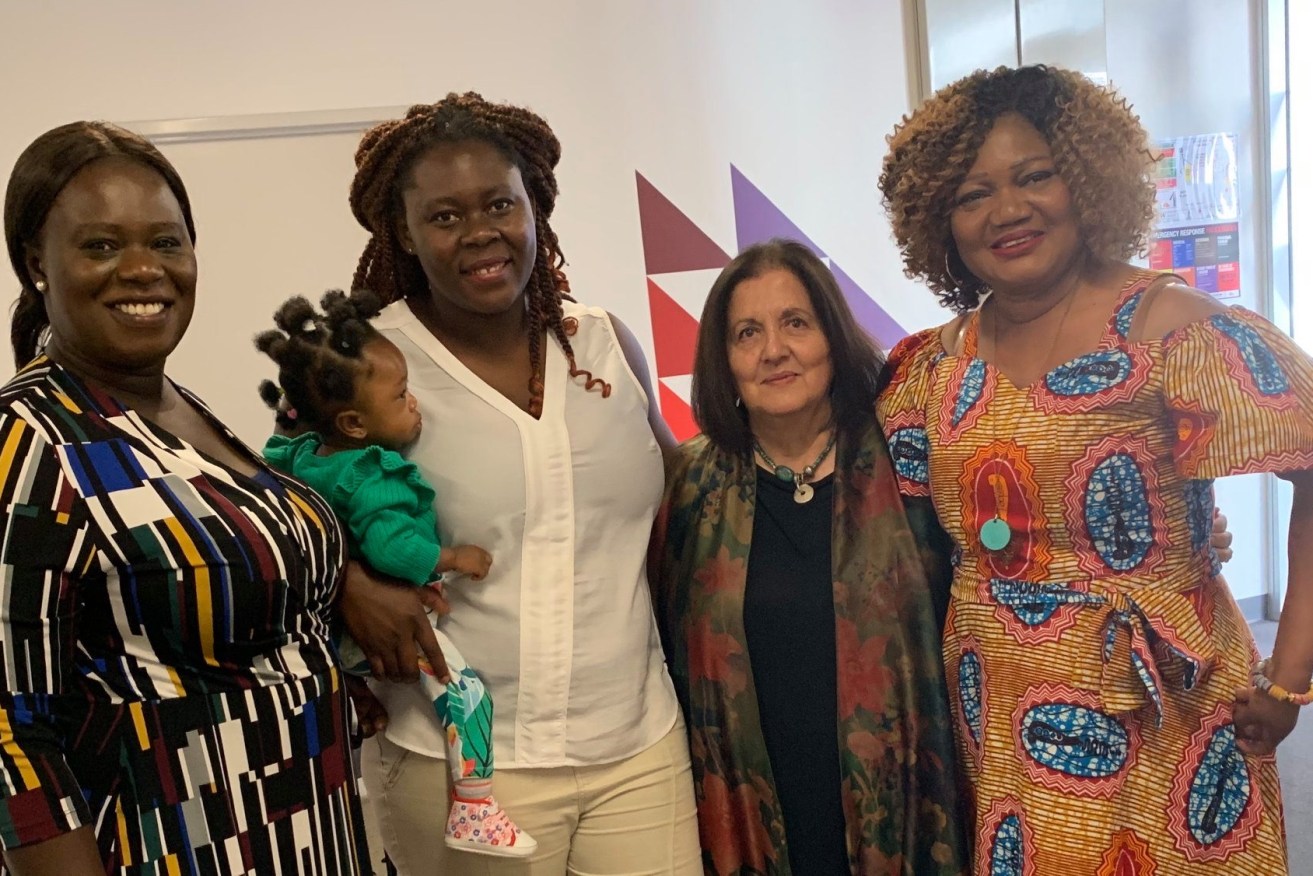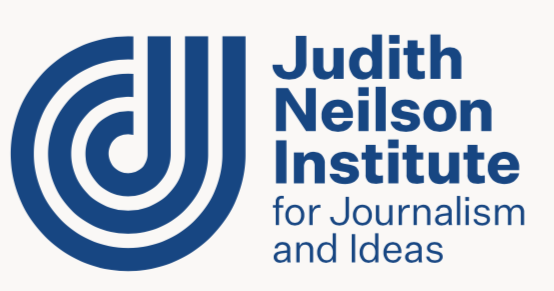SA’s ‘forgotten’ migrant families relying on food vouchers
Hundreds of migrant families are desperately trying to keep food on the table as many of the state’s most vulnerable slip through the support cracks in the face of COVID-19.


Dr Annette Osei-Kumah (left) at an African Communities Council of SA event with Eugenia Tsoulis (second from right). Supplied image
“Once the coronavirus started it became clear very quickly that the Federal Government position on temporary visa holders was if you can’t support yourself, go home,” migration agent Mark Glazbrook told InDaily.
But many have little money and no other home than here in South Australia.
Glazbrook has been gutted by the government’s response to deny financial support to a growing number of migrants and refugees on temporary and provisional visas who are losing their jobs.
He shares heart-breaking personal stories.
One father on a State Government-sponsored 489 visa is no longer taking important medication so the money can instead be used to buy food for his children.
Suleyman Kerem moved here from Turkey in 2017. Now he has lost his job at an Adelaide hotel meaning Kerem, his wife Seyda and their 15-month-old daughter Kayra are needing support to purchase food.
Many on temporary visas or who are seeking asylum are ineligible for JobKeeper, JobSeeker or access to Medicare, Glazbrook said, and some are now struggling to send their children to school.
“Under the skilled migrant program, the State Government invites people with skills to apply and if they are the type of person we want they will sponsor them,” Glazbrook said.
“Now they are leaving them high and dry. These visa holders have to pay for their children to go to a public school in South Australia, that can cost $7,500 for each child.
“These are people who came here with their hopes and dreams travelling across the world for a better life with whatever money they have saved, it’s terrible, absolutely terrible.”
The State Government says Glazbrook’s concerns about school fees on 482/457 visa holders have been raised in the State Government’s Migration Advisory Council, but a spokesperson also said a full or partial waiver of fees would be allowed for “exceptional cases of hardship”.
Glazbrook, whose own business Migrant Solutions has been forced to lay off workers, has started a Go Fund Me page to buy food and other essentials for migrants.
There has been $39,642 raised so far to provide $250 food vouchers for the hundreds of people who need help.
Glazbrook said many of those people met the requirements for permanent residency but a bottleneck in the bureaucracy meant processing times had blown out up to 24 months. As a result, he has lodged a complaint with the ombudsman.
“Some of these people have been working in Australia for 10 years. Now they find themselves with no job, no support, but they have been paying taxes for the past 10 years,” he said.
African community leader Dr Annette Osei-Kumah knows of many who have lost jobs and are struggling – but said an impressive resilience has emerged.
As coronavirus restrictions created challenges for people with isolation and no income, Osei-Kumah has seen the community pull together.
“There are many on skilled migrant or temporary visas not eligible for health benefits or for support – they are the people falling through the cracks,” she said.
“Our community has helped in any way it could.
“These are people from the same community and some are getting support purely based on visas. It’s quite heart wrenching for people to see.
“There’s a feeling that you have to share with your community – these are my friends, our children go to the same school so why should some miss out, why should one child go hungry, we are two families in the same room sharing together.”
Osei-Kumah, who is African Communities Council SA manager, said some were also struggling with their mental health, with isolation and other impacts of COVID-19 bringing back past trauma.
“Some have said it’s bringing back memories of the refugee camps. We have some mental health issues that some have gone through,” she said.
Care packages with the most basic commodities for women and children – shampoo, toothpaste, nappies and hygiene products – have run out at the state’s Migrant Resource Centre.
Chief executive officer Eugenia Tsoulis said the organisation that is the state’s leading settlement agency had helped about 300 women with the packages but demand for help overall was about three times higher than normal.
She said the organisation had received more emergency relief funding from government to support those struggling to pay bills and were helping 400 to 500 people.
“And we are partnering agencies, everybody is doing everything they can within their capacity,” she said.
The resource centre also had recorded video messages in different languages and opened telephone lines in 16 different languages to keep people aware of support or restrictions.
“And our nurses and psychologists are still working with vulnerable groups,” she said.
Glazbrook agrees that there has been strong community support emerge, telling of groups as diverse as Khalsa Foundation delivering food and groceries to Adelaide Casino staff taking voluntary pay cuts to help others.
The Migrant Resource Centre webpage tells of Vincent Uwimana translating and distributing updates in Swahili and Kinyarwanda to the local Congolese migrants in the South East, setting up a hotline and a WhatsApp group.
“A lot of people haven’t really been affected as much by coronavirus, some of those people are in politics or employed by the government and it might be hard for them to put themselves in the position of a temporary visa holder,” he said.
“But at the end of the day, this is a pretty extraordinary event and I just can’t understand why there is no emergency support or relief for some people who are really struggling.”
A State Government spokesperson said there were no fees for students in regional South Australia.
“State-nominated provisional visa holders 489 and 491 are not required to pay school fees,” the spokesperson said.
“Mr Glazbrook’s concerns regarding school fees on 482/457 visa holders have also been raised in the State Government’s Migration Advisory Council.”
The spokesperson also pointed to other exemptions, based on income, that can be found here.
This article is supported by the Judith Neilson Institute for Journalism and Ideas.

Want to comment?
Send us an email, making it clear which story you’re commenting on and including your full name (required for publication) and phone number (only for verification purposes). Please put “Reader views” in the subject.
We’ll publish the best comments in a regular “Reader Views” post. Your comments can be brief, or we can accept up to 350 words, or thereabouts.




